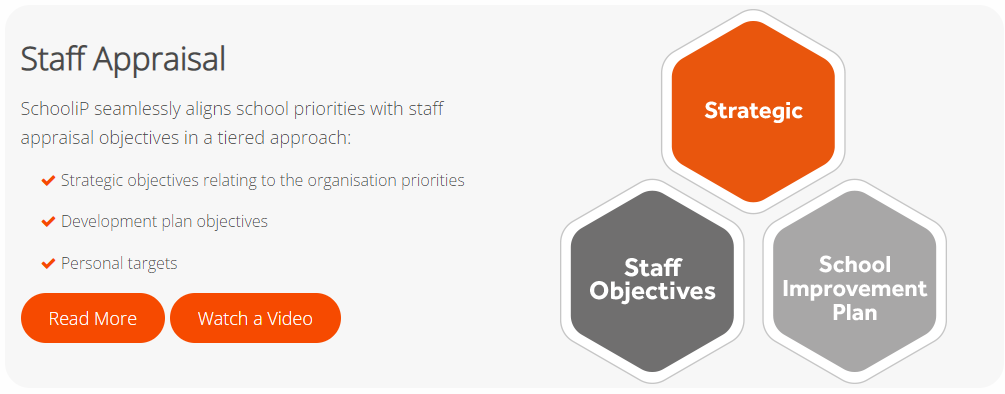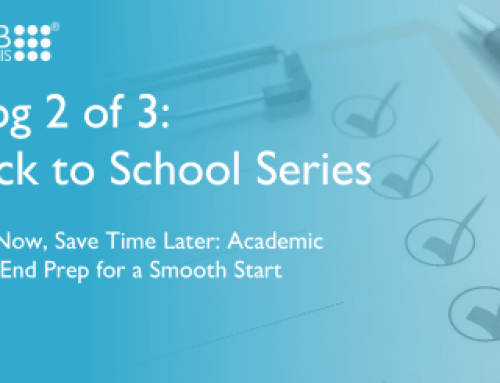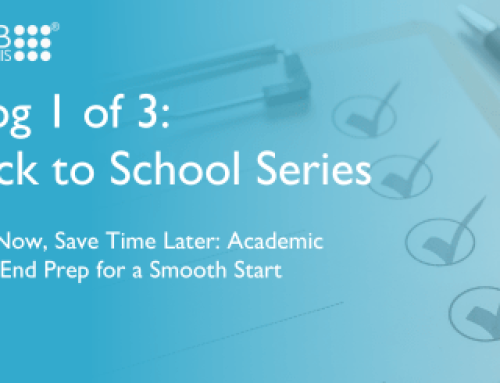There is a lot of negativity surrounding appraisals and performance management.
Appraisals can be a bit of a paper-based tick box exercise, which starts out with genuinely good intentions, but due to pressures caused by teacher workload are dismissed until the review process has ended. By this time there has been little productive evidence gathered for the purposes of performance management and pay progression decisions.
Staff also see appraisals as a process that can sometimes be judgmental. The use of Ofsted gradings for lesson observations is now universally frowned upon – after all, who wants to be labelled as “Inadequate”?
Damien Roberts, Director and Co-Founder of Derventio Education shares his experience and solution to overcome these problems.
Appraisal in schools is very much seen as a burden to staff. Teachers are extremely busy with their “day jobs”, teaching the children and little time is given over to the gathering of evidence to meet performance management targets.
The process of managing teacher appraisal in schools is cumbersome and many hours are spent each week, gathering paper-based evidence and producing reports for management meetings. Lots of time spent gathering data and not much time for reflective practice and improvement.
From our experience what should the process for staff appraisal in schools look like?
The process for Teacher Appraisal is outlined in “The Model Policy for Schools”, available from the Department for Education, which was last revised in 2019.
For schools adopting the policy, it states;
“Appraisal in this school will be a supportive and developmental process designed to ensure that all teachers have the skills and access to support they need to carry out their role effectively.”
When we’ve been working with schools, we were convinced that appraisal should be a process that’s not done to you, but rather with you in a supportive/collaborative environment.
The policy goes on to define that:
“The objectives set for each teacher will be appropriate to the teacher’s role and level of experience.”
Ideally, these objectives should be agreed upon with the teacher and they should be revised if the circumstances change.
Objectives should be developmental too which encourage teachers to be better. All of us have areas that warrant improvement and teachers are no different, whatever our level of expertise or length of service.
The policy states further that “Objectives can be set in relation to robust assessment data.”
This is important as pay progression can be a very contentious issue in schools an performance should be measured on a range of evidence and criteria.
The appraisal process should also feed into strategic whole school improvement. It should go hand in hand with the school development plan and inform the self-evaluation processes too. Strategic priorities for the school should feed into performance management targets set for the staff. This way all staff are contributing to the overall improvement of the school.

So, how in our view should schools review performance?
The appraisal process should incorporate a constant ongoing professional and supportive dialogue, celebrating successes and sharing these with the wider school community. These touchpoints should be little and often to capture ongoing evidence and offer support at key points throughout the process.
The emphasis here should be on a process that is very simple, saves time and is accessible to all parties. There is an opportunity here to use mobile technology to capture these communications and facilitate the gathering of evidence. This is something that we see as key for the future of appraisals in schools.
In addition to these regular touchpoints, we also have classroom observations.
Observations are evolving from judgmental exercises with gradings through to a more developmental approach. Either way, observations are seen as a key method of observing teaching practice first-hand and this mirrors the process of the inspection teams too.
When determining the success of a performance management process in schools, what is key is the level of training and support that is offered to teachers?
Training and support for staff in schools are usually delivered through INSET days and twilight sessions throughout the year.
- But how strategic is this training?
- Do schools understand what the key areas for improvement are and are they then implementing an effective programme for improvement?
- How well is this training received by staff?
- Do staff have any input and control over their own development?
In Conclusion
The crisis we are facing at the moment in schools is that many teachers are leaving the profession. In June 2021, Forbes reported that a “Record One In Six Teachers In England Quit After Just A Year In The Classroom”.
The primary reason for this is due to workload pressures. Although much is being done to improve the work/life balance for Teachers, there is still massive room for improvement. The appraisal process, therefore, does not need to contribute to the workload but needs to be a continuous process and a part of your daily routine.
The appraisal process should be something that is done with you and not to you. It needs to facilitate the process of capturing the professional dialogue between staff and line managers and the supporting evidence.
Our vision originally for SchooliP was to provide better personal outcomes for pupils and staff through joined-up school improvement, staff professional development and self-evaluation. However, we recognise that every school is unique and each has its own set of challenges.
SchooliP supports staff with their own development, helping them to celebrate their achievements with their line manager, and ultimately empowering senior leaders with valuable information about the areas within the school which require improvement. This means less time is spent gathering data and more time is spent utilising their expertise to bring about whole school improvement.
This is the way that we have reimagined performance management but we’re constantly looking for ways to improve too. That’s why I’m very interested to hear others’ thoughts on what they believe is wrong with Performance Management and how they feel it could be improved.
Background
Derventio Education is an educational software company based in Derby, East Midlands. Since the inception of Derventio in 2006, they have gained some sixteen years of experience working with school leaders on developing their whole-school improvement solution, SchooliP.
SchooliP is currently used by more than 500 schools and colleges to manage their staff appraisal, continual professional development, improvement planning and self-evaluation.
Through seamless integration, SchooliP makes it incredibly easy for WCBS customers to provide better personal outcomes for pupils and staff, and will offer you a further 10% discount.
Visit http://www.derventioeducation.com/schoolip for more information.


